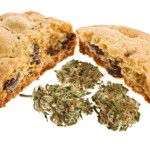This morning's edition of The New York Times had an interesting article on marijuana migrants to Colorado. These aren't people looking for recreational pot, they're parents of kids with intractable seizures. In August, Dr. Sanjay Gupta, a neurosurgeon who was President Obama's initial choice as U.S. Surgeon General in 2009 (he's now CNN's chief medical correspondent), published a bombshell article in CNN Health with the title, "Why I changed my mind on weed." Gupta had previously published a 2009 Time magazine article, "Why I would vote No on Pot", but then undertook an extensive review of past efforts pro and con marijuana. He discovered that the 1970 decision to make the drug a Schedule 1 substance was not based on solid evidence of addictive properties and lack of medical efficacy, but rather on the absence of studies and, presumably therefore, was a political choice, not a scientific one.
The problem, of course, is by making pot Schedule 1, those studies could not be easily done, if at all.
Gupta refers back to a 1943 study in New York City under Mayor LaGuardia. The medical arm of that research concluded smoking pot neither led to addiction nor was it a "gateway drug,"
Gupta also reviewed a huge number of relatively recent U.S. studies of the drug; interestingly, 94% of them were designed to show the dangers of marijuana and only 6% looked at its benefits.
I did find a 2009 article in The Journal of Clinical Investigation, a premier research journal, with the arcane title "Cannabinoid action induces autophagy-mediated cell death through stimulation of ER stress in human glioma cells," Like most JCI articles it was quite complex, but the bottom line was the scientists involved (from Spain and from Harvard) concluded THC, one of the major chemicals in marijuana, may be useful in fighting cancer. They did not suggest cancer patients should smoke pot!!!! Rather, a chemical pathway uncovered in the study could lead eventually to anti-tumor therapies.
A recent review of research studies on the use of cannabinoids (marijuana contains over 500 of these chemicals with THC and CBD being the most significant) for seizure disorders was titled "Slim Evidence for Cannabinoids for Epilepsy." It noted that marijuana appears to have an anti-epileptic effect in animal studies, but we don't know yet if that's true in people. The extensive literature review only found four human studies, none of high quality, and concluded no reliable conclusions could be drawn at the present time. But CBD appeared to be safe for the relatively short time it was given in these projects.
High quality studies clearly need to be done in this arena.
So why did Dr. Gupta change his mind?
In the first place he felt Americans had been misled by the 1970 decision to classify marijuana as a Schedule 1 drug. And then there is Charlotte's Web, an oil said to be low in THC (the chemical which leads to a pot "high') and chock-filled with CBD which has no psychotropic effects, but appears to have a variety of positive medical effects.
In 2006 a Colorado woman gave birth to twins, one of each gender. When they were only 3 months old, the girl started having seizures, first one, then many. The doctors said her scans and blood tests were normal, but eventually, when she was two and a half, a neurologist at Denver Children's Hospital she had found a rare genetic mutation associated with an intractable type of epilepsy. Another specialist put the child, Charlotte, on a special diet sometimes useful in drug-resistant epilepsy.
A plethora of side effects and, two years later, the return of multiple seizures, drove her parents to a relentless hunt for something that could stop her convulsions. Eventually they heard of a California boy being treated with a cannabis product for the same rare syndrome as their child.
Colorado law demanded two doctors approve her application for a medical marijuana card. Charlotte's mom found a Stanford-trained MD, PhD and a Harvard-trained internist who had significant reservations because of Charlotte's age, but felt all other treatment options had been tried. Both signed the card.
An initial dose of a low-THC, high-CBD product in oil form from a Denver dispensary gave incredible results…no seizures for the first week of treatment. But the oil was in short supply and expensive.
Enter the Stanley brothers, six men who owned a large marijuana dispensary and grew their own plants. They had developed another marijuana-derived oil that was low in THC, while containing lots of CBD. They had also started a nonprofit, the Realm of Caring Foundation, to provide cannabis and its derivatives to those who had major diseases (cancer, MS, seizures, Parkinson's), but were unable to pay market prices for the substances.
Fast forward to Charlotte at age six, having seizures in her sleep only two to three times a month (versus up to 300 a week). Her neurologic status has markedly improved and the oil she takes has been named after her. Dr. Gupta visited her and other patients who have had similar results.
Not all find their panacea in Colorado medical marijuana derivatives, but one of the two physicians who signed Charlotte's card, working with Dr. Edward Maa, an assistant professor of neurology at the University of Colorado School of Medicine, has accumulated a series of eleven such children with drug-resistant major seizure disorders and eight had a decline in seizure frequency of 98-100%. The data is about to be presented at an American Epilepsy Society meeting.
There's another side to the Colorado story, a familiar and sordid one. An August, 2013 article in The Denver Post was titled "Oversight of Colorado medical marijuana doctors remains spotty." It detailed a sting operation which led to a conviction of a Loveland physician who prescribed marijuana for an ankle sprain ten years past and for back pain even the patient said wasn't present. The two state governmental agencies who should be providing oversight of those doctors who provide medical marijuana prescriptions have largely been inactive.
The Colorado State Health Department has referred the names to the board of medicine of a very small number of physicians who account for an inordinate percentage of medical marijuana recommendations . They say these are the outliers, implying the vast majority who prescribe the drug are doing in an ethical and appropriate manner. I'm not so sure that is true and a law enforcement officer has been quoted as saying, "Very little has occurred to any of these physicians until now."
To complicate matters, Colorado voters (and those in the state of Washington) in November, 2012, approved the use of recreational marijuana for anyone over 21 years old. The Justice Department response is captured in an online article "Tolerating Pot With a Frown."
I think medical marijuana is here to stay; we'll see how many careful studies get done to determine who should get actually it.



